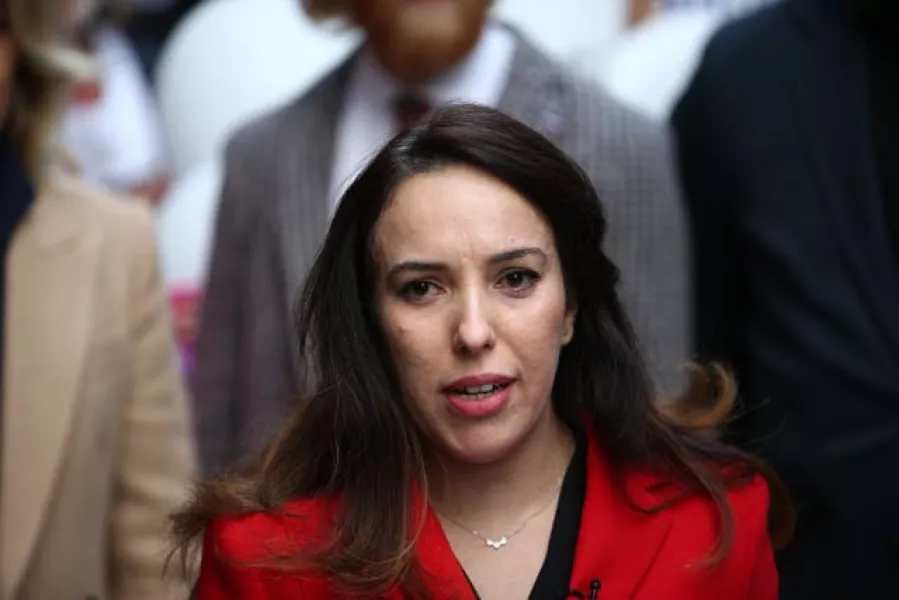WikiLeaks founder Julian Assange will find out whether he will be extradited to the United States from Britain.
Assange, 49, faces an 18-count indictment, alleging a plot to hack computers and a conspiracy to obtain and disclose national defence information.
The case follows WikiLeaks’s publication of hundreds of thousands of leaked documents in 2010 and 2011 relating to the Afghanistan and Iraq wars, as well as diplomatic cables.
Prosecutors say Assange helped US defence analyst Chelsea Manning breach the Espionage Act in unlawfully obtaining material, was complicit in hacking by others, and published classified information that put the lives of US informants in danger.
Assange denies plotting with Manning to crack an encrypted password on US Department of Defence computers and says there is no evidence anyone’s safety was put at risk.
He is set to appear at the Old Bailey on Monday, where District Judge Vanessa Baraitser will deliver her judgment on whether he should be extradited to face the charges in the US.
175 years
Assange’s lawyers have said he faces up to 175 years in jail if convicted, although the US government said the sentence was more likely to be between four and six years.
Kristinn Hrafnsson, WikiLeaks editor-in-chief, said: “The mere fact that this case has made it to court let alone gone on this long is an historic, large-scale attack on freedom of speech.
“The US Government should listen to the groundswell of support coming from the mainstream media editorials, NGOs around the world such as Amnesty and Reporters Without Borders and the United Nations who are all calling for these charges to be dropped.
We must hope for the best but always prepare for the worst.
Preparing for the best demobilizes.
Demobilization loses political battles.
Whatever the court rules on the 4th, we must all redouble our efforts until the day Julian is free. #Assange #FreeAssangeNOW#pardonAssange pic.twitter.com/tfb11s1lHH— Stella Assange #FreeAssangeNOW (@StellaMoris1) December 28, 2020
“This is a fight that affects each and every person’s right to know and is being fought collectively.”
Assange’s fiancee, Stella Moris, with whom he has two young sons, is expected to attend court on Monday along with his legal team.
She has been among supporters urging Donald Trump to pardon Assange before the end of his presidency.
Speaking to the PA news agency about any potential input from the US president in his last days in office, Mr Hrafnsson said: “There have been a lot of his supporters who have called on him to take the position … people will want to think about their legacy, this is absolutely the right thing to do.
“It is not a thing that you want to have on the resume to leave office and have a continuation of that situation.
“You mentioned surprises and that is at least something that Donald Trump (in which) has been an expert in the last four years so why not have a glimpse of hope, of a surprise there?”
Assange has been held in high security Belmarsh prison since he was carried out of the Ecuadorian embassy in London by police before being arrested for breaching his bail conditions in April 2019.
He had entered the building in 2012 after exhausting all legal avenues to avoid extradition to Sweden to face sex offence allegations, which he has always denied and were eventually dropped.
Assange’s legal team claimed the prosecution under Mr Trump’s administration was politically motivated after an investigation launched during Barack Obama’s presidency failed to bring charges.
During his 2016 election campaign against Hillary Clinton, Mr Trump said “I love WikiLeaks” after the website published Russia-hacked Democratic National Committee (DNC) emails.

Assange’s extradition hearing was told he was offered a pardon in August 2017, allegedly on behalf of the US president, in exchange for identifying the source of the emails.
The court also heard a security contractor was allegedly recruited by “American friends” to bug Assange’s meetings at the Ecuadorian embassy.
By December 2017, the US contacts were said to be “desperate”, and even discussed a potential kidnap or poison plot to end the stalemate.
The Old Bailey heard evidence Assange has been diagnosed with Asperger’s syndrome and psychiatrists for the defence said he suffers from severe depression and is a high suicide risk.
James Lewis QC, representing the US government, has said the hearing is “not a trial” and argued the defence submissions do not amount to a bar to Assange’s extradition.
The judge’s decision is likely to be appealed by the losing side.







